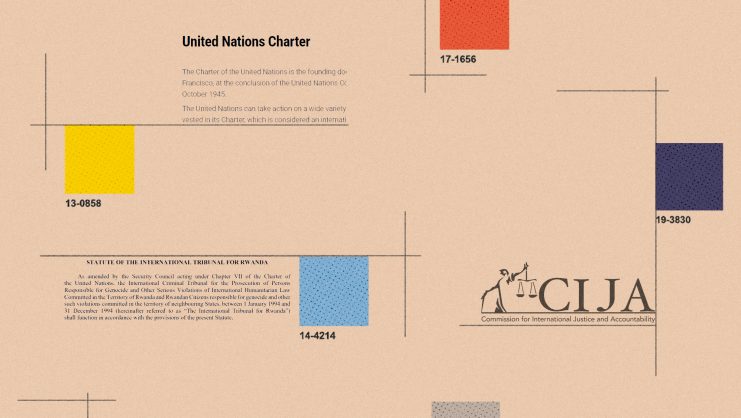Darren Walker is highly confident in the capacity of leaders to change things. This confidence informs his work at the helm of the Ford Foundation, which is dedicated to the fight against inequality. The foundation’s mission statement cites the inherent dignity of all people and denounces the political, economic, and social exclusion of large swaths of the global population. In this spirit, Walker spoke to a new generation of leaders at IE University’s 2019 graduation ceremony, urging young professionals to develop an inclusive leadership style and a broader perspective.
Two interconnected crises
Walker began by noting that our planet is facing two interconnected crises. The first is income inequality. The gap between the richest and the poorest continues to increase, and inequalities based on gender, race, sexual orientation, and disabilities remain widespread. The second great crisis is climate change, which affects the entire planet but hits vulnerable populations the hardest. Moreover, as the United Nations recently warned, we have just 12 years to act before the trend of global warming becomes irreversible.
Given these pressing crises, it’s clear that our society needs to change. According to Walker, this change will need to come from all sectors of society—from governments, non-profits, philanthropy, and civil society—but especially from our economic system. Irresponsible capitalism, Walker argued, prioritizes short-term gains over long-term value.
Businesses and their leaders can choose to keep contributing to the problem… or start building the solution.
The leader’s decision
We now find ourselves at a crossroads where a decision must be made. Businesses and their leaders can choose to keep contributing to the problem… or start building the solution. Society at large favors the latter. According to the most recent Edelman Trust Barometer, 76% of people feel that “CEOs should take the lead on creating needed change.” This means they need to take the initiative—with everything that entails.
Walker mentioned three things that all 21st-century leaders will need to do: build long-term value, recognize all stakeholders, and measure social impact.
But how do today’s organizations typically measure performance and success? Prioritizing shareholder value above all else devalues the investments we make in our future—the future of workers, of our communities, of our organizations, and of our planet. Only by understanding who our actions affect and acting accordingly can we truly create lasting value for everyone.
While recognizing that trust in government institutions has declined, Walker also noted that, in today’s globally interconnected economy, companies cannot afford to build walls instead of bridges. Business activity across borders and continents cannot be dissociated from the interests and concerns of the people who live and work in the surrounding communities. Companies must listen to them and give them a role in the decision-making process that affects their lives.
In today’s globally interconnected economy, companies cannot afford to build walls instead of bridges.
“Nothing about us without us”
Through his work for an organization involved with disability issues, Walker discovered a useful guiding principle: “Nothing about us without us.”
For businesses, the implications are clear: No decisions about workers without consulting those workers. No policies that impact a local community without listening to the local community. No actions that impact our environment without considering how they affect the planet and the people who live on it.
Walker even advised people further down the corporate ladder to ask—and even demand—that their organization implement the necessary changes.
One key challenge is the need to measure value and success from a broader perspective. Walker drew an interesting contrast between how success is measured in education and in business.
Whereas grades and honors are important in educational settings, there are other measures of success that prove more useful in our lives and careers, contributing to our overall excellence as people. We can apply these measures to assess the success of a person’s education: As a student, did you grow in your understanding of the world? Did you experience the city where you lived? Did you take in its art and culture? Did you contribute to the community in some way? Did you build relationships and friendships with your classmates? Did you come to understand experiences different from your own and expand your perspective?
We can apply similar measurements in the business world: What contributions does a company make to the places and communities where it operates? How does it contribute to the growth and welfare of the community? Does the organization have a positive influence on people and the planet? It’s not about philanthropy; this is the only valid approach in the 21st century. Only through a broader and more inclusive perspective can we aspire to achieve sustainability. We must be prepared to take on the challenges that lie ahead and embrace a key principle of activist leadership: “Value what you can measure, but also what truly matters.”
© IE Insights.











